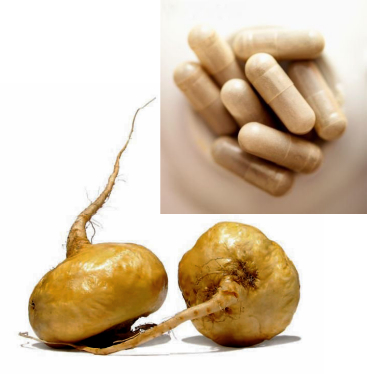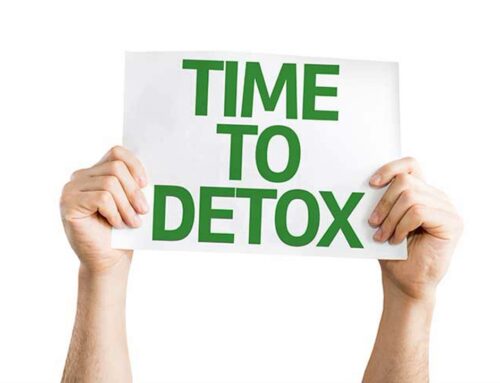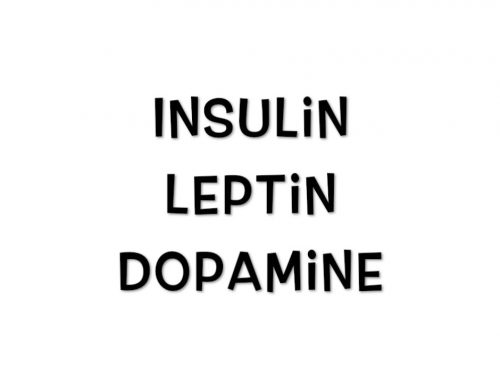by Dr. Tina Marcantel
 Maca is an herbal supplement that’s been clinically shown to help alleviate many of the symptoms of menopause and perimenopause. One reason I like maca is that it’s different from hormone replacement therapy because it doesn’t introduce hormones into your body from an outside source. Instead, it supports the adrenals so they can produce the hormones you need naturally by bringing the glands back into balance, which is a more natural and long-term approach to treatment.
Maca is an herbal supplement that’s been clinically shown to help alleviate many of the symptoms of menopause and perimenopause. One reason I like maca is that it’s different from hormone replacement therapy because it doesn’t introduce hormones into your body from an outside source. Instead, it supports the adrenals so they can produce the hormones you need naturally by bringing the glands back into balance, which is a more natural and long-term approach to treatment.
In her book The Hormone Cure, Sara Gottfried, MD, cites clinical research, saying, “The magical herb maca (Lepidium meyenii) has consistently been shown to increase estradiol in menopausal women, and helps with insomnia, depression, memory, concentration, energy, hot flashes, and vaginal dryness, as well as improved body mass index and bone density.* Additionally, maca has been shown to improve libido and to lower anxiety and depression, all of which are symptoms of low estrogen” (p. 191).**
The mechanism of action for maca is different than for other herbal supplements like black cohosh and other phytoestrogens (plant estrogens). Maca is an adaptogen that supports regulation of the entire hormonal profile through the Hypothalamus Pituitary Adrenal (HPA) Axis. Simply put, maca provides nutrients that support these glands, which in turn helps stimulate and rejuvenate the adrenal glands. Restoration of the adrenals leads to a more balanced output of cortisol, our daily stress hormone, and it also helps release more of the sex hormones DHEA, testosterone, and estrogen, which helps take us through menopause.
I should point out that maca may not be for everyone. As I often say, every patient is different and each individual has a unique set of circumstances we need to consider. Some women may need bioidentical hormone replacement therapy to help alleviate their hormonal imbalances. I have found that for those who have been on BHRT (myself included) I am sometimes able to introduce maca into their treatment plan and eventually wean them off hormone replacement.
While the above-mentioned studies specifically targeted the benefits of maca for menopausal and perimenopausal women, it is often used for both men and women of all ages for its hormone-balancing properties. As always, before recommending the use of any product of this kind I would urge a person to speak with his or her physician and get appropriate laboratory testing to make sure this is a good fit.
Also, all maca products are not created equal. The particular brand I’m currently using at my clinic, FemmenessencePro by Natural Health International, contains Maca-GO®, which is clinically proven with five years of research, double blind placebo crossover clinical trials and full pharmacology and toxicology. While I’m sure there are many good brands of maca products on the market, you want to be sure you are getting an effective product from a reputable manufacturer.
*Meissner H, Kapczynski W, Mscisz A, et al. “Use of a gelatinized maca (Lepidium peruvianum) in early-postmenopausal women—a pilot study.” International Journal of Biomedical Science I (1) (2005): 33-45; Meissner H, et al. “Hormone-balancing effect of pre-gelatinized organic maca (Lepidium peruvianum Chacon): (III) Clinical responses of early-postmenopausal women to maca in double-blind, randomized, crossover configuration, outpatient study.” International Journal of Biomedical Science 2 (4) (2006): 375-94.
**Brooks NA, Wilcox G, Walker KZ, et al. “Beneficial effects of Lepidium meyenii (maca) on psychological symptoms and measures of sexual dysfunction in postmenopausal women are not related to estrogen or androgen content.” Menopause 15 (6) (2008): 1157-62.
Visit our Health Videos and Articles Index for many more informative articles on a variety of health topics!





